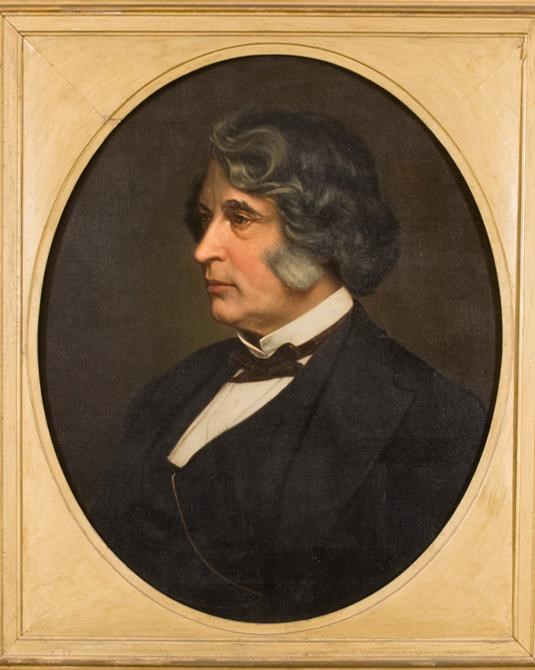Last updated: January 16, 2023
Person
Charles Sumner

Longfellow House- Washington's Headquarters NHS Museum Collection (LONG 4328)
"Say, sir, in your madness, that you own the sun, the stars, the moon; but do not say that you own a man, endowed with a soul that shall live immortal, when sun and moon and stars have passed away." Charles Sumner, The Barbarism of Slavery
Charles Sumner served as a leading abolitionist in the U.S Senate, as well as a fierce advocate for civil rights. He was born and raised on the north slope of Beacon Hill, a racially diverse neighborhood and a center of the abolitionist movement in the city. From the very start of his public career, he decried the expansion of slavery, openly denouncing both the enslavers of the South and the textile manufacturers of the North who supported the institution. Around this time, Sumner acted as co-counsel in a case, Roberts v. City of Boston, that challenged the segregation of Boston’s public school system. Utilizing the argument that segregation in schools went against the statutes of Massachusetts and that separate could not possibly be equal, the case reached the Supreme Judicial Court of Massachusetts. Though Sumner's side lost, the case served as precedent in the landmark trial Brown v. Board of Education just over a century later.
With the passage of the Fugitive Slave Act in 1850, Sumner was elected to the U.S Senate on an anti-slavery platform and quickly gained a reputation as a fierce and uncompromising abolitionist champion. His stance became especially apparent in conversations surrounding the Kansas-Nebraska Act of 1854. Senator Stephen Douglas of Illinois shaped the law around the concept of popular sovereignty: the belief that territories should decide for themselves whether they enter the country as free or slave states. This law quickly led to violence and bloodshed in the territories of Kansas and Nebraska, as both pro- and antislavery advocates flocked there to sway the votes. The "Bleeding Kansas" conflict prompted Sumner to give his most famous speech: "The Crimes Against Kansas," which condemned the institution of slavery and some of the senators who participated in it. Two days later, on the floor of the Senate, South Carolina Congressman Preston S. Brooks beat him senseless with a cane in retribution. Sumner never fully recovered. He remained absent from the senate for three years, his empty senate seat serving as a symbol of the brutality of the South.
Returning to the Senate in 1859, Sumner once again threw himself into his work. With the outbreak of the U.S. Civil War in 1861, he forced himself into the inner circle of Abraham Lincoln. He encouraged the President to issue the Emancipation Proclamation, advocated for the creation of all-Black regiments, and played a key role in the passage of the 13th Amendment in the Senate.
Though abolition constituted his primary crusade, Sumner championed other causes beyond the ending of slavery. In the aftermath of the Civil War, Sumner fought against U.S. imperialistic expansion and anti-immigration policy. He primarily focused, however, on the passage of a comprehensive civil rights bill. The bill guaranteed all citizens, regardless of color, equal access to public accommodations and the right to serve on juries. The bill passed after his death, albeit in a watered-down form. Just a few years later, the Supreme Court struck the law down as unconstitutional, and Congress did not pass a similar version of the bill again until the Civil Rights Act of 1964.
Largely a lifelong bachelor, Sumner maintained deep friendships and was considered a member of the Longfellow family circle. After Sumner's death at the age of 63, the poet Henry Wadsworth Longfellow memorialized him with an elegy:
His was the troubled life,
The conflict and the pain,
The grief, the bitterness of strife,
The honor without stain.
